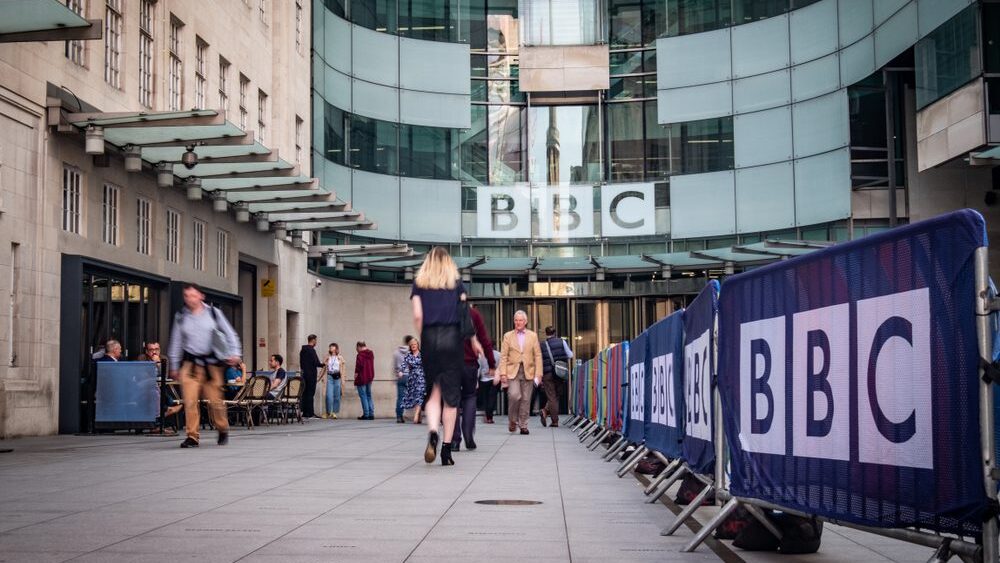
Photo: William Barton / Shutterstock.com
British officials have found it proportionate to label Hamas as “terrorist” for some time. But even after a week of utter terror, on which even the early reports have been filled with barbarism, the British Broadcasting Corporation believes the “T word” is too “loaded.”
Not that it doesn’t believe Hamas has committed “appalling atrocities,” which it has made quite clear. The matter, as long-time broadcaster and BBC World Affairs Editor John Simpson wrote this week, simply revolves around the corporation’s “founding principles”:
Terrorism is a loaded word, which people use about an outfit they disapprove of morally. It’s simply not the BBC’s job to tell people who to support and who to condemn—who are the good guys and who are the bad guys.
We regularly point out that the British and other governments have condemned Hamas as a terrorist organisation, but that’s their business. We also run interviews with guests and quote contributors who describe Hamas as terrorists.
The key point is that we don’t say it in our voice. Our business is to present our audiences with the facts, and let them make up their own minds.
Political blog Guido Fawkes asked why, if this was the case, the BBC has chosen to use the word “terrorist” in its reporting of other, national stories. It added that “[this week] Hamas beheaded babies in front of their own families. This isn’t difficult…”
Indeed, the horrific nature of the events has prompted politicians from all corners to lay shame on the BBC for its tone. Defence Secretary Grant Shapps insisted the broadcaster’s refusal to describe Hamas as terrorist was “verging on disgraceful … I think that it’s time to get the moral compass out at the BBC.” Foreign Secretary James Cleverly also said, while appearing on the BBC: “I just want to make sure that you recognise that in your reporting, they are not militants, they are terrorists.”
Labour leader Sir Keir Starmer, who made it clear at this week’s conference he has “no time” for members cheering on the Palestinian cause, later weighed in, noting that
I think the BBC needs to explain why it isn’t. I said “terrorism” and “terrorist,” and to me that’s obviously what we are witnessing.
It’s not just politicians, too (who, it should be said, might have reason to criticise the tone of others in order to boost their own standing). Four of what The Daily Telegraph described as Britain’s “most senior lawyers” have written to Ofcom, the official broadcasting regulator, complaining that “the BBC has fallen well below the standards expressed in its Editorial Values in reporting of that invasion and the consequences therefrom.”
But for now, at least, the BBC is sticking to its position, having issued a number of defences on its website which point to its “long-standing position for its reporters not to use the term themselves unless attributing it to someone else.”
